Past Scholars
Contact
- LANSCE User Office
- (505) 667-6797
2022 LANSCE Rosen Scholar
Sean Agnew
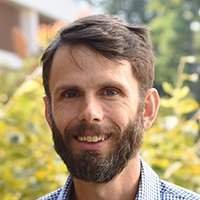 Sean R. Agnew is the William G. Reynolds Professor of Materials Science and Engineering at the University of Virginia in Charlottesville, VA. Sean brings over 20 years of experience employing neutron (as well as electron and X-ray) diffraction-based characterization to determine the controlling deformation mechanisms and phase transformation kinetics of metals, alloys, and intermetallic compounds. This work has involved extensive collaboration with researchers here at LANL. As a materials scientist, his specific contribution has been to identify, perform, and analyze specific use case experiments that take advantage of novel scattering capabilities as they are developed. He then uses that experimental data to validate computational materials modeling approaches. The results of these collaborations have been widely cited in the scientific literature.
Sean R. Agnew is the William G. Reynolds Professor of Materials Science and Engineering at the University of Virginia in Charlottesville, VA. Sean brings over 20 years of experience employing neutron (as well as electron and X-ray) diffraction-based characterization to determine the controlling deformation mechanisms and phase transformation kinetics of metals, alloys, and intermetallic compounds. This work has involved extensive collaboration with researchers here at LANL. As a materials scientist, his specific contribution has been to identify, perform, and analyze specific use case experiments that take advantage of novel scattering capabilities as they are developed. He then uses that experimental data to validate computational materials modeling approaches. The results of these collaborations have been widely cited in the scientific literature.
During his time as Rosen Scholar, he is striving to develop a more comprehensive understanding of the thermomechanical behavior of U-6wt%Nb, an alloy that has a number of attractive properties. Incidentally, “U6” exhibits the shape memory effect (SME), whereby a certain level of plastic deformation imparted while the material is in its low symmetry, monoclinic “martensite” phase can be recovered if the material is heated above a critical temperature, causing it to revert to the higher symmetry, high temperature “austenitic” phase. This is a phenomenon that is most well-known and well-studied in NiTi “nitinol” alloys.
The current effort to develop and validate a polycrystal plasticity-based model which describes the behavior of U6 has involved extensive collaboration with research staff at the Lujan Center (Don Brown, Bjorn Clausen, Sven Vogel, and postdoctoral researcher, Dan Savage) who have collected a voluminous amount of in-situ and ex-situ neutron and x-ray scattering data on U6 over the years. He is also benefiting tremendously from interactions with Carlos Tomé (retired, MST-8); Bob Hackenberg (Sigma complex); and Ricardo Lebensohn, Miroslav Zecevic, and Avadh Saxena (T-division).
Finally, he is collaborating with Lujan researchers, Sven Vogel and Alex Long, to explore the potential of neutron diffraction contrast tomography, a 3D microscopy technique that may be useful for examining large-grained, high density materials which are challenging to image using even high energy X-rays.
2021 LANSCE Rosen Scholar
Rene Reifarth
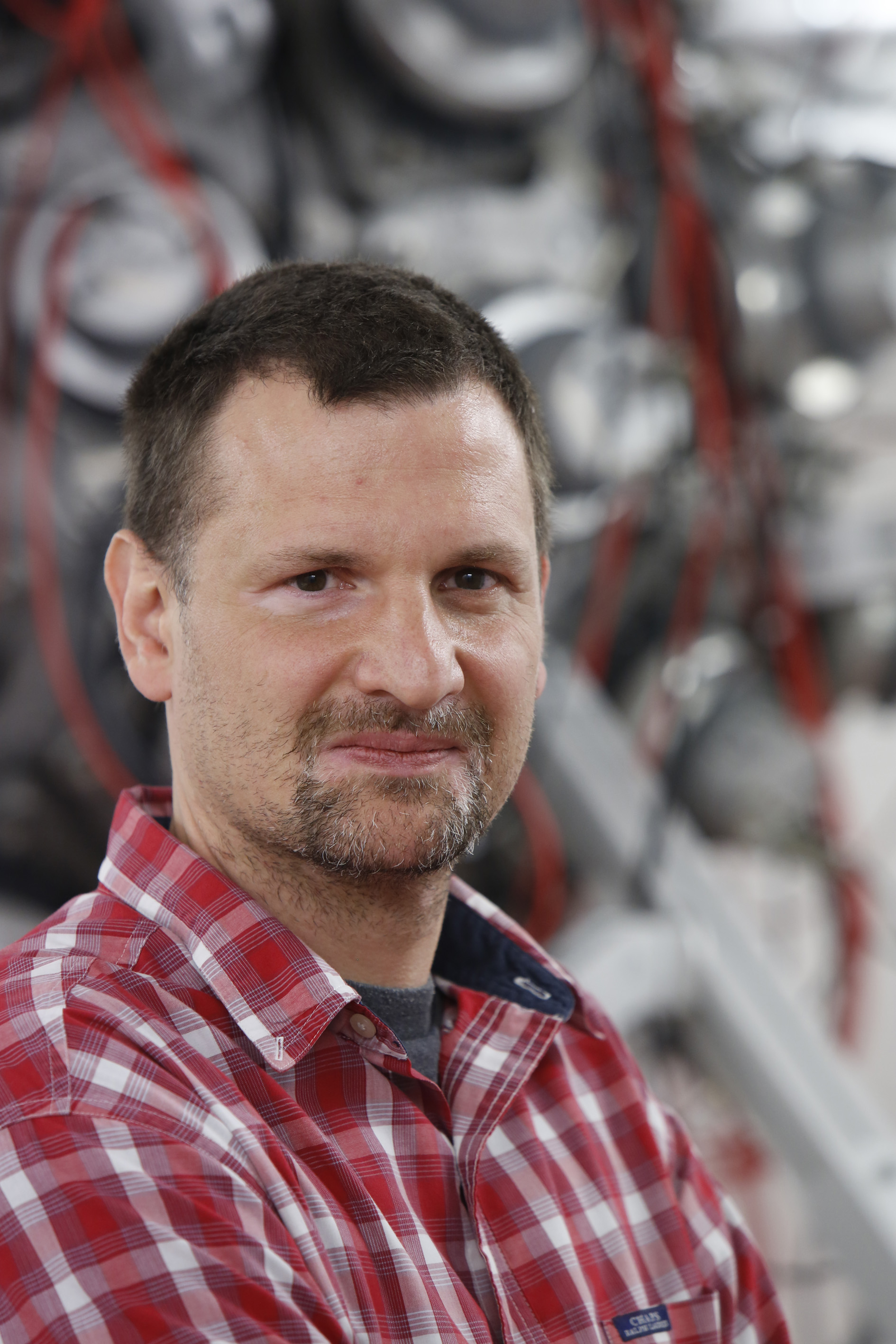
Since the beginning of his academic career Rene Reifarth has worked on the investigation of radioactive nuclei important for astrophysics and technology with ever improved techniques. This started with activations of minute amounts of unstable nuclei and continued with the use of high-efficiency gamma detectors for determining neutron capture reactions in more and more hostile environments like DANCE@LANSCE .
The investigation of charged-particle induced reactions on radioactive nuclei in inverse kinematics using ion storage rings has been the focus of his research for the last years. This resulted in the first ever measurement of proton capture cross section close to astrophysical energies using a storage ring.
Dr. Reifarth has an h-index of 42, with more than 6,200 citations, and over 490 publications. Dr. Reifarth has active collaborations with LANL, GSI Helmholtzzentrum, CERN, Notre Dame, and many others. During his career, Dr. Reifarth and his group performed multiple experiments at the Lujan Center at LANSCE, as well as other facilities around the world.
2020 LANSCE Rosen Scholar
Tim Chupp
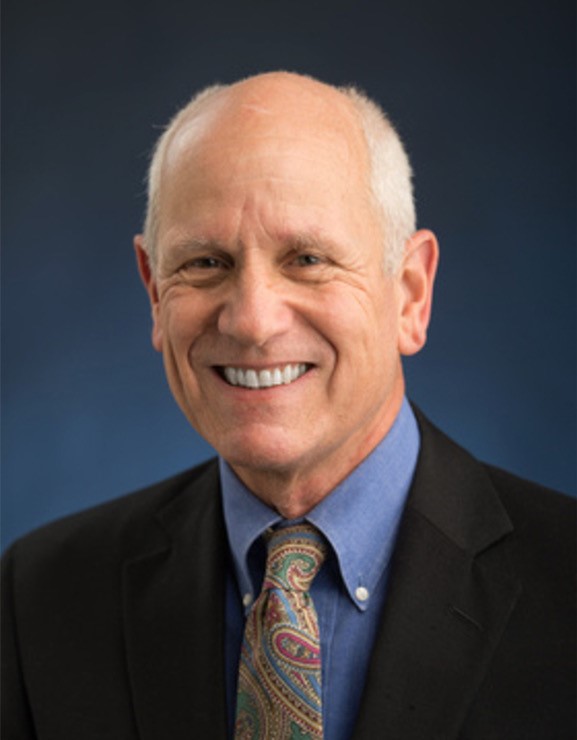 Dr. Tim Chupp is a professor of physics, applied physics, and biomedical engineering from the University of Michigan. As Rosen Scholar he will work with the Subatomic Physics group’s Neutron Team to develop the LANL Room-Temperature Neutron Electric Dipole Moment (nEDM) experiment that will used at LANSCE's world-leading Ultracold Neutron Facility. The electric dipole moment is the electrical stretching of neutrons or atoms along their spin axis.
Dr. Tim Chupp is a professor of physics, applied physics, and biomedical engineering from the University of Michigan. As Rosen Scholar he will work with the Subatomic Physics group’s Neutron Team to develop the LANL Room-Temperature Neutron Electric Dipole Moment (nEDM) experiment that will used at LANSCE's world-leading Ultracold Neutron Facility. The electric dipole moment is the electrical stretching of neutrons or atoms along their spin axis.
Throughout his career, Chupp haspursued experiments that reveal the nature of elementary particles and the forces between them using hybrid techniques of atomic and nuclear physics. The key tool he has developed with students and collaborators has been control of the spin or polarization of atoms, nuclei, and neutrons using laser techniques. With this special handle, precision measurements of particle energy levels are used to study physics beyond the Standard Model. The Standard Model is the current theory describing interactions between fundamental particles–electrons and quarks–in the universe. However, some inconsistencies in the Standard Model suggest that there might be new physics that cannot be described by this theory. In addition to the LANL nEDM effort, Chupp's team is working on measuring the magnetic moment anomaly g-2 of the muon, studying the decay properties of the neutron and measuring the stretching of the 129Xe atom EDM.
Professor Chupp is a fellow of the American Association for the Advancement of Science and the American Physical Society and was awarded the 1993 I.I. Rabi Prize and a 2019 Gordon and Betty Moore Fundamental Physics Travel Award.
2019 LANSCE Rosen Scholar
Paolo Rech
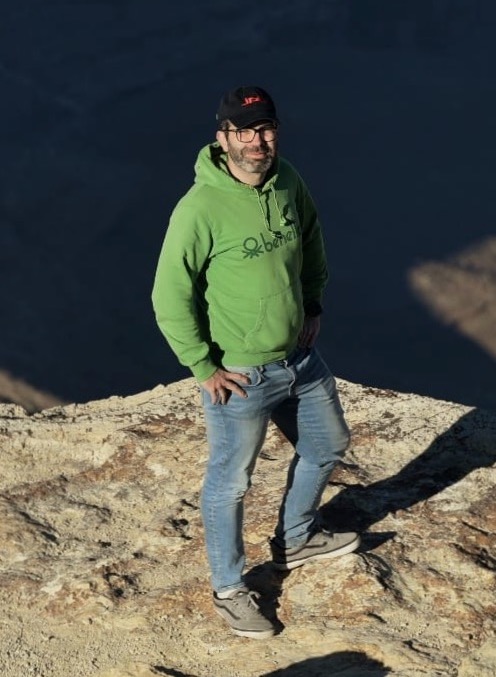 Dr. Paolo Rech is an Associate Professor at the Universidade Federal do Rio Grande do Sul (UFRGS), in Brazil. He has matured a unique experience after almost 10 years of research in the reliability field. He achieved his master and Ph.D. degrees from Padova University, Italy, in 2006 and 2009, respectively, for then moving as a PostDoc to the Laboratoire d’Informatique, de Robotique et de Microélectronique de Montpellier (LIRMM), in France. Since 2012, at UFRGS, Paolo has built a strong research group known worldwide for the works on the reliability of complex and modern computing devices. Lately, his research focus has moved to the High Performance Computing (HPC), the automotive, and the aerospace domains. He has active collaborations with the Science and Technology Facility Council (STFC), UK, with Jet Propulsion Laboratory (JPL), Pasadena, CA, and with the most important silicon industries.
Dr. Paolo Rech is an Associate Professor at the Universidade Federal do Rio Grande do Sul (UFRGS), in Brazil. He has matured a unique experience after almost 10 years of research in the reliability field. He achieved his master and Ph.D. degrees from Padova University, Italy, in 2006 and 2009, respectively, for then moving as a PostDoc to the Laboratoire d’Informatique, de Robotique et de Microélectronique de Montpellier (LIRMM), in France. Since 2012, at UFRGS, Paolo has built a strong research group known worldwide for the works on the reliability of complex and modern computing devices. Lately, his research focus has moved to the High Performance Computing (HPC), the automotive, and the aerospace domains. He has active collaborations with the Science and Technology Facility Council (STFC), UK, with Jet Propulsion Laboratory (JPL), Pasadena, CA, and with the most important silicon industries.
As Rosen Scholar, Paolo has taken advantage of the accelerated neutron beam delivered at LANSCE to evaluate and increase the reliability of supercomputers and autonomous vehicles. Atmospheric neutrons are known to generate faults in computing devices and are considered the most critical source of failures in modern technologies. These failures are extremely dangerous in a cyber-physical system, as an autonomous vehicle, and should be strictly avoided. Paolo has investigated the causes of the observed tolerable and critical errors for HPC and safety critical applications irradiating a wide set of modern devices and codes at WNR. Particular attention has been given to parallel and heterogeneous computing devices (ARM processors, GPUs, FPGAs) executing neural networks for objects detection. Additionally, to better understand the observed phenomena and to identify the causes for critical errors, fault-injection has been performed in both software and device microarchitecture.
The distinction between critical and tolerable errors, and the observation that most of the errors that affect neural networks based object detection do not modify the vehicle behavior, disclosed the possibility of proposing selective and efficient hardening solutions. The success of this project was possible thanks to the excellent collaboration with the WNR, ISR-3, and USRC groups at LANL. During the Rosen Scholar project Paolo also contributed to the organization of a summer school on radiation effects in electronic devices at LANL.
2017-2018 LANSCE Rosen Scholar
Ra’anan Tobey
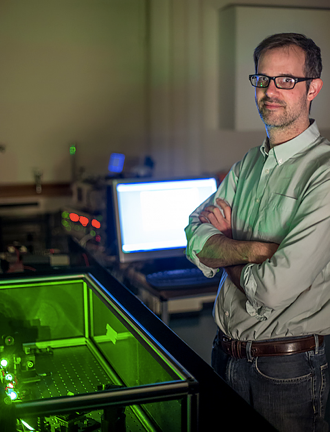
Dr. Ra’anan Tobey is an assistant professor of physics in the Zernike Institute for Advanced Materials at the University of Groningen, Netherlands.
As Rosen Scholar he will develop real-time imaging capability of nucleation dynamics in complex oxides and itinerant ferromagnets. To achieve this goal, Dr. Tobey’s expertise in transient grating spectroscopy will be combined with Los Alamos National Laboratory’s expertise in coherent diffraction imaging. Dr. Tobey will use this technology to probe the dynamics of competing phases to gain further understanding of materials performance. The techniques and expertise developed with this work will impact the proposed Matter-Radiation Interactions in Extremes (MaRIE) facility.
With demonstrated creativity in the development of techniques to capture ultrafast materials dynamics, Dr. Tobey is a pioneer in applying the ultrafast optical and x-ray technique known as transient grating to magnetic and electron processes. He has extensive leadership in using ultrafast optical, x-ray, and electron probes to study correlated electron and magnetic processes on the femtosecond and nanometer to atomic scales. His experience includes research on dynamics in magnetic and strongly correlated materials; ultrafast optics; time-resolved visible, terahertz, infrared, and soft x-ray spectroscopy; transient grating spectroscopy; ultrafast electron diffraction; synchrotron and free-electron laser science; cryogenics, and magnetic fields.
Dr. Tobey, who earned his Phd in physics in 2005 from the University of Colorado, has led or participated in many seminal ultrafast spectroscopy and imaging experiments and has more than 35 high-impact papers in journals such as Science, Nature, Nature Photonics, Scientific Reports, and Physical Review Letters. Before joining the University of Groningen, he held postdoctoral positions at Brookhaven National Laboratory and the University of Oxford.
2016-2017 LANSCE Rosen Scholar
Chen-Yu Liu
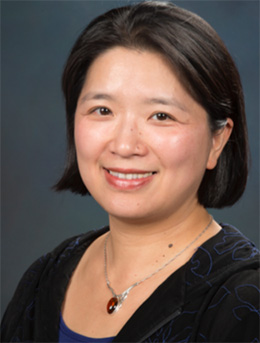
Dr. Chen-Yu Liu is an Associate Professor of Physics at Indiana University at Bloomington. Her research focus is on symmetry tests and fundamental neutron physics; in particular, she specializes in techniques with ultracold neutrons (UCN). These neutrons, due to their very low kinetic energies, can be stored in material bottles or magnetic traps for durations of up to hundreds of seconds. The long storage time allows for measurements of many fundamental properties of this charge- neutral hadronic system, with improved precision. Using UCN as the principle tool (but not limited to it), Prof. Liu’s research group has been developing experimental techniques to measure the neutron beta- decay lifetime, the neutron decay asymmetries, and the electric dipole moment of the neutron with the aim to reduce experimental uncertainties to a level sufficient to challenge the predictions of the electroweak theory and, by scrutinizing the low-energy neutron observables, to search for long-awaited evidence of physics beyond the Standard Model of particle physics.
Since 2011, Prof. Liu has been a co-spokesperson of the UCNtau experiment, an effort to improve the measurement of the neutron beta-decay lifetime using UCN in a magneto-gravitational trap. This experiment uses UCN from the LANSCE source. This effort was motivated by a discrepancy among the recent precision measurements of the neutron lifetime; the separate averages of two independent methods (the beam and bottle techniques) lead to neutron lifetimes that differ by as much as ten seconds, while the uncertainties reported from individual experiments are on the level of two seconds (in the beam experiment) and one second (in the bottle experiments). Resolving this discrepancy and improving the precision of the neutron lifetime will not only refine the physics of electroweak decay but also impact the model of Big Bang Nucleosynthesis.
Prof. Liu was a Sloan Research Fellow in 2007-2008. She is the recipient of the 2015 NIST Precision Measurement Grant and National Science Foundation awards. She is currently serving on the American Physical Society Division of Nuclear Physics Program Committee and the LANSCE User Executive Committee.
2015-2016 LANSCE Rosen Scholar
Markus Roth
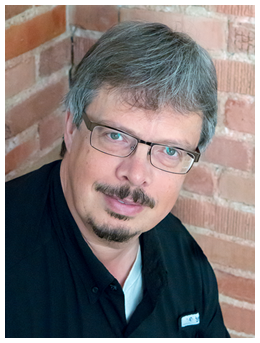 Dr. Markus Roth is a Full Professor at the University of Technology in Darmstadt, Germany at the Institute for Nuclear Physics, where he has been since 2003. He leads a research group that is also associated with the German National Laboratory “Gesellschaft für Schwerionenforschung (GSI),” with the main focus on dense plasma physics, advanced diagnostic methods, and particle acceleration by ultra-intense lasers. He has also led international research teams on the topic of ion acceleration. He received his Diploma in 1994 and PhD in 1997.
Dr. Markus Roth is a Full Professor at the University of Technology in Darmstadt, Germany at the Institute for Nuclear Physics, where he has been since 2003. He leads a research group that is also associated with the German National Laboratory “Gesellschaft für Schwerionenforschung (GSI),” with the main focus on dense plasma physics, advanced diagnostic methods, and particle acceleration by ultra-intense lasers. He has also led international research teams on the topic of ion acceleration. He received his Diploma in 1994 and PhD in 1997.
Roth has served his community as a reviewer for funding agencies (NSF, DOE, NNSA, CCLRC, IUF and others), in addition to refereeing for the standard scientific journals. He serves as the spokesperson of various collaborations within the LIGHT collaboration (Laser Ion Acceleration Handling and Transport), focused on the combination of a laser ion driver and a conventional accelerator. He also serves as an international lecturer on plasma and ion beam physics, and is the spokesperson for French-German and a US-German bilateral collaborations on dense plasma physics.
Roth became an APS Fellow in 2013, and received an Defense Physics Award of Excellence from DOE in 2014. His work is especially recognized in inertial confinement fusion (ICF), fast ignition, and research in novel ion acceleration concepts using ultra-intense lasers and their applications.
He was honored by the 2012 Rosen Scholar Award from the Los Alamos National Laboratory, where he lead an international team to establish a laser driven neutron source at the LANL TRIDENT laser facility.
2014-2015 LANSCE Rosen Scholar
Edwin Fohtung
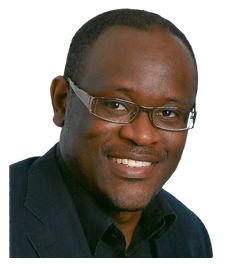 Dr. Edwin Fohtung was named the 2015 Rosen Scholar at the Los Alamos Neutron Science Center (LANSCE) of Los Alamos National Laboratory (LANL) and is the current LANSCE Professor in conjunction with the Department of Physics at New Mexico State University.
Dr. Edwin Fohtung was named the 2015 Rosen Scholar at the Los Alamos Neutron Science Center (LANSCE) of Los Alamos National Laboratory (LANL) and is the current LANSCE Professor in conjunction with the Department of Physics at New Mexico State University.
A materials physicist, Edwin obtained his PhD from the University of Freiburg in Germany and performed research at ANKA Synchrotron Light Source Facility at the Karlsruhe Institute of Technology (KIT) in Germany. During this time, he became fascinated with the use of neutrons and (in)coherent photons for the study a wide range of condensed and soft matter systems.
Edwin’s current research explores (via experimental and numerical modeling) the use of neutron and coherent scattering techniques, optical (laser-based) pump-probe experimental techniques, pulsed electric and magnetic fields to probe a variety of emergent soft and condensed matter systems. He currently focuses on multiferroics, magnetoelectric, electronic, straintronics, and magnetic phases arising due to competing and/or coupled charge, spin, orbital ordering and lattice interactions.
In addition to his research activities, Edwin provides scientific consultation for the future LANL signature facility: Matter Radiation Interaction in Extremes (MaRIE) project. He is a guest editor of the Journal of Optics special issue on “Coherent Diffractive Imaging” and serves as a member on the ORNL Neutron Sciences -Science Review Committee. Edwin is also the recipient of a Department of Defense-Air Force Office of Scientific Research and Los Alamos National Security/Department of Energy awards.
2013-2014 LANSCE Rosen Scholars
Devinder Sivia
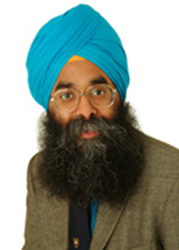 Dr. Sivia is the Stipendary Lecturer in Mathematics for the Sciences at St. John’s College, Oxford. An accomplished lecturer and author, Devinder’s work on Bayesian methods of data analysis has been published as tutorial volumes in the Oxford Chemistry Primers series, in two slim tutorial volumes, on the "Foundations of Science Mathematics" (1999, OUP). As a lecturer at St. John’s he has taught "Maths for Natural Sciences" to Chemistry and Physics undergraduates for a number of years.
Dr. Sivia is the Stipendary Lecturer in Mathematics for the Sciences at St. John’s College, Oxford. An accomplished lecturer and author, Devinder’s work on Bayesian methods of data analysis has been published as tutorial volumes in the Oxford Chemistry Primers series, in two slim tutorial volumes, on the "Foundations of Science Mathematics" (1999, OUP). As a lecturer at St. John’s he has taught "Maths for Natural Sciences" to Chemistry and Physics undergraduates for a number of years.
Devinder’s research revolves around the application of Bayesian probability theory to all sorts of data analysis problems, mainly in the physical sciences, and his work has been published in a tutorial book: Data Analysis - a Bayesian tutorial (1996, Second Edition 2006, OUP).
Paul Koehler
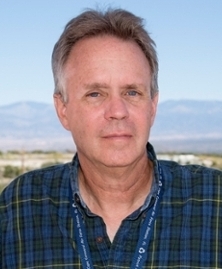 Dr. Paul Koehler has performed and led ground breaking research at Los Alamos National Laboratory (LANL) and Oak Ridge National Laboratory (ORNL). Koehler is currently a guest researcher collaborating in nuclear physics at the University of Oslo in Norway.
Dr. Paul Koehler has performed and led ground breaking research at Los Alamos National Laboratory (LANL) and Oak Ridge National Laboratory (ORNL). Koehler is currently a guest researcher collaborating in nuclear physics at the University of Oslo in Norway.
While at LANL and ORNL, Paul received numerous industry awards, the most notable of which are a Publication of the Year Award from ORNL and a Nova Award from Lockheed Martin. He has published 95 peer-reviewed papers and over 110 additional international conference articles and has spoken at nearly 50 invited engagements at international meetings.
Koehler is also very active in the community as a mentor and coach. A common thread of all this research, in addition to providing data of importance to basic and applied physics, is experiments aimed at testing and improving nuclear models.
2012-2013 LANSCE Rosen Scholars
Richard Casten
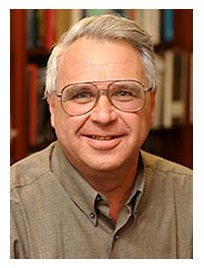 Professor Casten has many accomplishments and awards including Fellowships in the American Physical Society and the American Association for the Advancement of Science. He was recently awarded the prestigious Tom W. Bonner prize in Nuclear Physics and received the APS Division of Nuclear Physics Mentoring Award.
Professor Casten has many accomplishments and awards including Fellowships in the American Physical Society and the American Association for the Advancement of Science. He was recently awarded the prestigious Tom W. Bonner prize in Nuclear Physics and received the APS Division of Nuclear Physics Mentoring Award.
Professor Casten is very active in the nuclear physics community. He is the present Chair of the FRIB Science Advisory Committee and the past Chair of the Nuclear Science Advisory Committee (NSAC). He has served on all four Long Range Plan Panels since 1989 (1989, 1995, 2001,2007). He was Director of the Wright Nuclear Structure Laboratory from 1995-2008.
Dr. Casten will work at LANSCE to develop new research ideas and possible directions for basic research in nuclear structure. Specific areas of interest include exotic nuclei, the mechanisms for the emergence of collectivity in nuclei, the evolution of shell structure, the stability of the heaviest nuclei, recognizing and interpreting the simple and regular patterns that complex nuclei exhibit, order and chaos in nuclei, the relationship between mass (binding) and structure, and new signatures of structure and its changes with N and Z.
Markus Roth
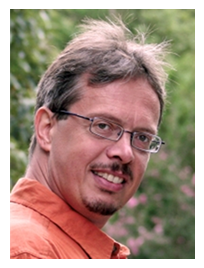 Professor Markus Roth is a distinguished professor of physics in the Institut für Kernphysik, Technische Universität, Darmstadt. His current research is in the area of neutron production following high- power laser interactions with materials. This emerging field brings together the disciplines of nuclear physics, material science, plasma physics and high- power lasers.
Professor Markus Roth is a distinguished professor of physics in the Institut für Kernphysik, Technische Universität, Darmstadt. His current research is in the area of neutron production following high- power laser interactions with materials. This emerging field brings together the disciplines of nuclear physics, material science, plasma physics and high- power lasers.
Roth's research goal is to ultimately produce neutrons over a broad energy range using pulsed lasers. Such a source promises to be very compact and cost effective compared to existing neutron sources. If successful, such laser-based neutron sources could be used in a wide range of applications ranging from basic nuclear physics research to industrial applications.
Dr. Roth will work with LANSCE and Physics Division to research novel, compact, high-brightness sources of neutrons using ultra intense lasers.

